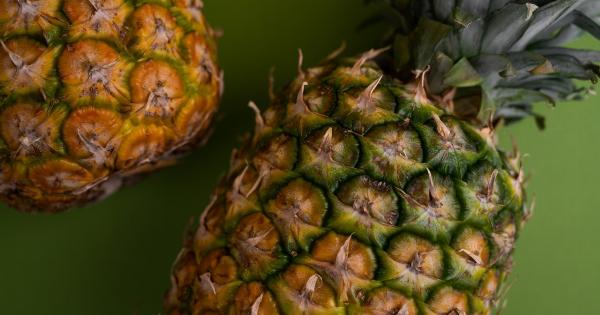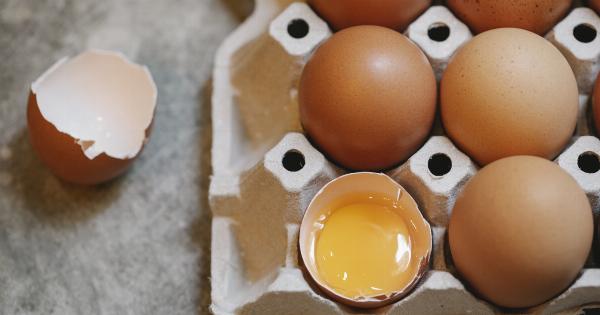When it comes to heart health, a balanced diet plays a crucial role in preventing cardiovascular diseases. Essential fatty acids, particularly Linoleic Acid, have gained increasing attention in recent years for their significant impact on heart health.
Linoleic Acid, an omega-6 fatty acid, is essential to the body’s functioning and cannot be naturally synthesized. Therefore, it is essential to understand the importance of Linoleic Acid and incorporate linoleic-rich foods into your diet to promote a healthy heart.
The Role of Linoleic Acid in Heart Health
Linoleic Acid is a polyunsaturated fatty acid that plays a vital role in maintaining the structure and function of cell membranes in the body.
It is a precursor to other crucial fatty acids, such as Arachidonic Acid and Gamma-linolenic Acid, which are involved in various physiological processes.
One of the main benefits of Linoleic Acid lies in its ability to lower LDL (low-density lipoprotein) cholesterol levels, often referred to as “bad” cholesterol.
High levels of LDL cholesterol can contribute to the buildup of plaque in the arteries, leading to atherosclerosis and an increased risk of heart disease and stroke. Linoleic Acid helps to reduce LDL cholesterol levels, thus promoting cardiovascular health.
Furthermore, Linoleic Acid is known for its anti-inflammatory properties. Chronic inflammation is a leading cause of heart disease and other chronic conditions.
By reducing inflammation, Linoleic Acid contributes to the prevention of heart disease and supports overall heart health.
Linoleic-Rich Foods for a Healthy Heart
Luckily, there are numerous food sources that are rich in Linoleic Acid. Incorporating these foods into your diet can be an excellent way to ensure you are getting an adequate intake of this essential fatty acid:.
1. Nuts and Seeds
Nuts and seeds, such as walnuts, almonds, flaxseeds, and sunflower seeds, are excellent sources of Linoleic Acid. Snack on a handful of mixed nuts or sprinkle flaxseeds on your morning oatmeal to increase your Linoleic Acid intake.
2. Cooking Oils
Cooking oils like safflower oil, sunflower oil, and corn oil are rich in Linoleic Acid. These oils are commonly used in everyday cooking and can easily replace oils with lower Linoleic Acid content.
3. Avocado
Avocado is not only packed with healthy fats but also contains significant amounts of Linoleic Acid. Enjoy avocado slices in salads, on toast, or as a delicious guacamole dip to boost your heart health.
4. Fish
Fatty fish, such as salmon, mackerel, and sardines, are renowned for their omega-3 fatty acid content. However, they also provide a good source of Linoleic Acid, making them an excellent choice to promote heart health.
5. Soybeans and Tofu
Soybeans and tofu are not only rich in protein but also contain substantial amounts of Linoleic Acid. Incorporate soy-based products into your diet, such as tofu stir-fries or edamame as a snack, for a heart-healthy boost.
6. Leafy Green Vegetables
Leafy green vegetables, including spinach, kale, and Swiss chard, offer an array of nutrients while also providing Linoleic Acid. Incorporate these greens into salads, soups, or smoothies for a heart-healthy addition to your daily meals.
7. Poultry
Chicken and turkey breasts, when consumed without the skin, are lean sources of protein that also contain Linoleic Acid. Opt for grilled or baked poultry for a heart-healthy meal option.
8. Whole Grains
Whole grains, such as brown rice, quinoa, and oats, not only provide fiber but also contain Linoleic Acid. Swap refined grains with whole grains to support heart health.
9. Dairy and Eggs
Dairy products and eggs, when consumed in moderation, can contribute to a Linoleic Acid-rich diet. Opt for low-fat dairy options, such as milk, yogurt, and cheese, and enjoy eggs cooked in a heart-healthy manner.
10. Legumes
Legumes, including lentils, chickpeas, and kidney beans, are excellent sources of plant-based protein and Linoleic Acid. Add legumes to soups, stews, or salads for a heart-healthy and filling meal option.
Risks and Considerations
While Linoleic Acid is vital for heart health, it is essential to maintain a balanced intake.
Consuming excessive amounts or relying heavily on processed and fried foods can lead to an imbalance of fatty acids, including an increase in omega-6 fatty acids like Linoleic Acid. This imbalance, when combined with a low intake of omega-3 fatty acids, can promote inflammation and potentially negate the benefits of Linoleic Acid.
Furthermore, it is crucial to note that individuals with specific medical conditions or taking certain medications may need to limit their Linoleic Acid intake.
It is advisable to consult with a healthcare professional or registered dietitian for personalized advice regarding Linoleic Acid consumption.
In Conclusion
Linoleic Acid plays a crucial role in promoting heart health and overall well-being. By incorporating linoleic-rich foods into your diet, you can help lower LDL cholesterol levels, reduce inflammation, and support a healthier heart.
Remember, a well-rounded diet that includes a variety of whole foods will not only provide you with adequate amounts of Linoleic Acid but also offer other essential nutrients crucial for maintaining optimal heart health.
Take care of your heart by enjoying a balanced and nutrient-rich diet that includes Linoleic Acid-rich foods.


























